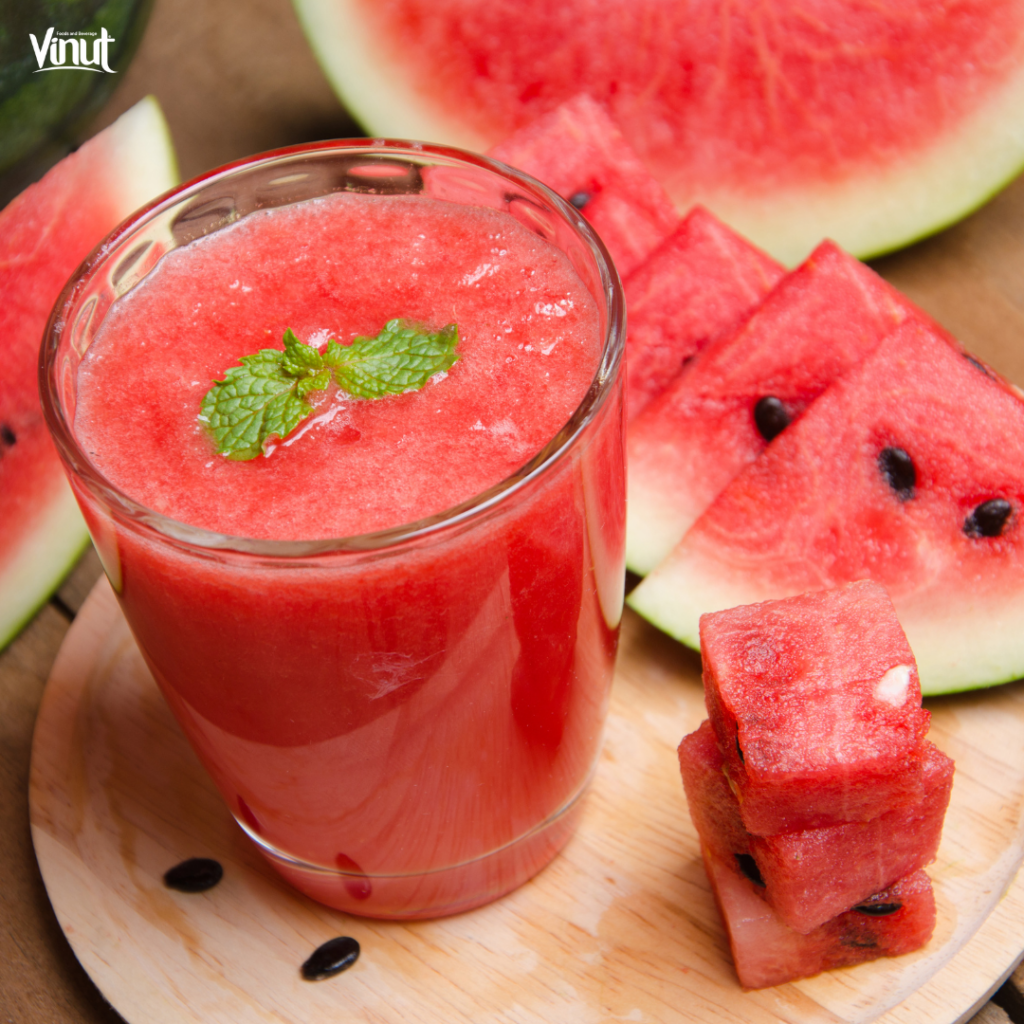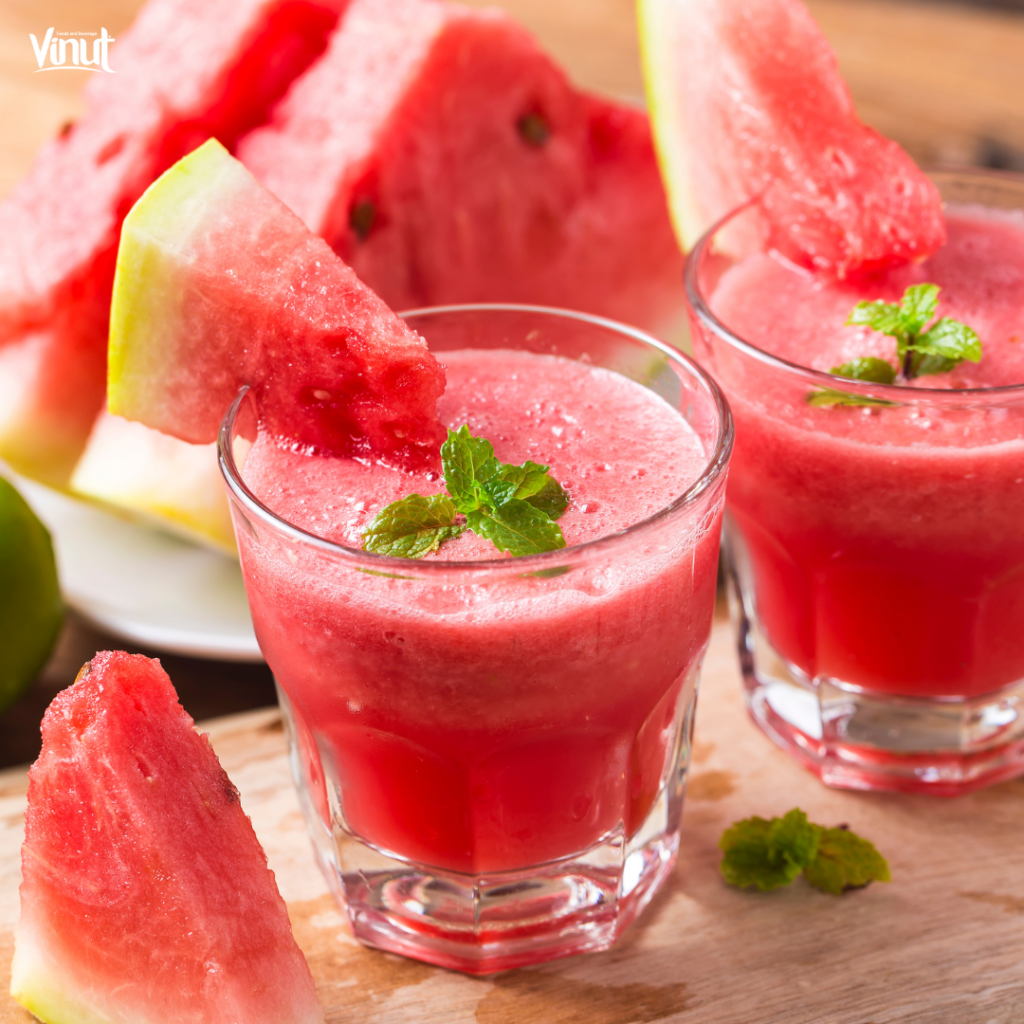
News
Uncover the Nutritional Value of Watermelon Juices

Watermelon juices is a refreshing and hydrating drink that not only quenches your thirst on hot summer days but also offers a plethora of health benefits. Packed with essential nutrients and antioxidants, watermelon juice is a delicious way to stay healthy. In this article, Cojo Cojo will explore the nutritional value of watermelon juice and why it should be a staple in your diet.

1. Introduction
Watermelon juices is not just a tasty treat; it’s a nutrient-dense beverage that offers numerous health benefits. Whether you’re looking to hydrate, boost your immune system, or improve your heart health, watermelon juice can play a vital role in your diet. Let’s dive into the nutritional composition and health benefits of this refreshing juice.
2. Nutritional Composition of Watermelon Juices
Vitamins
Watermelon juices is rich in vitamins A, B6, and C. Vitamin A is essential for maintaining healthy vision and skin, while vitamin B6 aids in brain development and function. Vitamin C is a powerful antioxidant that boosts the immune system and promotes skin health.
Minerals
This refreshing juice is also a good source of essential minerals such as potassium and magnesium. Potassium helps regulate blood pressure and supports heart health, while magnesium is crucial for muscle function and bone health.
Antioxidants
Watermelon juice contains various antioxidants, including lycopene and beta-carotene. These antioxidants help protect the body from free radical damage and reduce the risk of chronic diseases.
3. Hydration and Electrolyte Balance
High Water Content
Watermelon is composed of about 92% water, making watermelon juice an excellent way to stay hydrated. Proper hydration is essential for maintaining bodily functions and preventing dehydration, especially during hot weather.
Electrolytes: Potassium and Magnesium
Watermelon juices helps maintain electrolyte balance due to its potassium and magnesium content. These electrolytes are vital for muscle function, nerve transmission, and maintaining fluid balance in the body.

4. Supports Heart Health
Lycopene
Lycopene, a powerful antioxidant found in watermelon juice, has been linked to improved heart health. It helps reduce inflammation, lower cholesterol levels, and protect against oxidative damage to the heart.
Citrulline
Citrulline, an amino acid present in watermelon juice, is converted into arginine in the body. Arginine helps improve blood flow and reduces blood pressure, promoting overall cardiovascular health.
5. Aids in Digestion
Dietary Fiber
While watermelon juices contains less fiber than whole watermelon, it still offers some dietary fiber that aids in digestion. Fiber helps regulate bowel movements and prevents constipation.
Natural Enzymes
Watermelon juice contains natural enzymes that aid in digestion. These enzymes help break down food more efficiently, improving nutrient absorption and reducing digestive discomfort.

6. Boosts Immune System
Vitamin C
Vitamin C is known for its immune-boosting properties, and watermelon juice is an excellent source of this essential vitamin. Regular consumption of watermelon juice can help strengthen the immune system and protect against common illnesses.
Antioxidants
The antioxidants in watermelon juice, including lycopene and beta-carotene, help protect the body from free radical damage and support a healthy immune response.
7. Promotes Skin Health
Vitamins A and C
Vitamins A and C in watermelon juice play a crucial role in maintaining healthy skin. Vitamin A helps repair skin cells and promotes a youthful appearance, while vitamin C supports collagen production, improving skin elasticity and reducing wrinkles.
Hydration
Staying hydrated is key to maintaining healthy skin, and watermelon juice, with its high water content, helps keep the skin moisturized and glowing.
8. Anti-inflammatory Properties
Lycopene and Cucurbitacin E
Watermelon juice contains anti-inflammatory compounds such as lycopene and cucurbitacin E. These compounds help reduce inflammation in the body, which can alleviate symptoms of chronic inflammatory conditions and improve overall health.

9. Supports Weight Loss
Low Calorie and Fat Content
Watermelon juices is low in calories and fat, making it a great addition to a weight loss diet. Its natural sweetness can also help satisfy cravings for sugary drinks and snacks.
High Water Content
The high water content in watermelon juice helps you feel full and hydrated, reducing the likelihood of overeating and supporting weight management efforts.
10. Improves Muscle Recovery
Citrulline and Amino Acids
Citrulline in watermelon juice has been shown to improve muscle recovery and reduce muscle soreness after exercise. The amino acids in the juice help repair and build muscle tissue, making it a great post-workout drink.
11. Regulates Blood Pressure
Potassium and Magnesium
The potassium and magnesium in watermelon juice help regulate blood pressure by relaxing blood vessels and improving blood flow. Regular consumption of watermelon juice can help maintain healthy blood pressure levels.
12. Enhances Eye Health
Beta-Carotene and Vitamin A
Watermelon juice is rich in beta-carotene and vitamin A, which are essential for maintaining good vision and eye health. These nutrients help prevent age-related macular degeneration and improve overall eye function.
13. Helps Prevent Chronic Diseases
Antioxidants and Phytochemicals
The antioxidants and phytochemicals in watermelon juice help protect against chronic diseases such as heart disease, diabetes, and cancer. These compounds neutralize free radicals and reduce inflammation, promoting long-term health.
14. How to Make Watermelon Juice
Simple Recipe
Making watermelon juice is easy and requires only a few ingredients:
- 4 cups of cubed watermelon (seeds removed)
- 1 tablespoon of lemon juice (optional)
- 1-2 teaspoons of honey or sugar (optional)
- Place the watermelon cubes in a blender.
- Blend until smooth.
- Strain the juice through a fine mesh sieve or cheesecloth to remove any pulp (optional).
- Add lemon juice and honey or sugar to taste.
- Serve chilled and enjoy!

Tips for Enhancing Flavor
To enhance the flavor of your watermelon juice, try adding a few mint leaves, a splash of lime juice, or a pinch of salt. You can also mix watermelon juice with other fruit juices like orange or pineapple for a refreshing twist.
Conclusion
Watermelon juice is a delicious and nutritious beverage that offers numerous health benefits. From hydration and digestion support to immune boosting and heart health, watermelon juice is a fantastic addition to your diet. By incorporating this refreshing juice into your daily routine, you can enjoy its many nutritional benefits and stay healthy.
FAQs
1. How often should I drink Watermelon Juices? It’s generally safe to drink watermelon juice daily as part of a balanced diet. However, moderation is key, and it’s important to consume a variety of fruits and vegetables for optimal health.
2. Can I drink Watermelon Juices if I have diabetes? Watermelon juice has a relatively low glycemic index, making it suitable for people with diabetes. However, it’s best to consult with a healthcare provider to determine the appropriate amount based on individual dietary needs.
3. Is watermelon juices good for pregnant women? Yes, watermelon juice is safe and beneficial for pregnant women. It provides essential nutrients like vitamins A and C, which support fetal development and boost the immune system.
4. Can watermelon juices help with weight loss? Watermelon juice is low in calories and fat, making it a good option for weight loss. Its high water content can help you feel full and hydrated, reducing the likelihood of overeating.
5. How long can I store freshly made watermelon juices? Freshly made watermelon juice should be consumed within 2-3 days when stored in the refrigerator. For best taste and nutritional value, it’s recommended to drink it as soon as possible.
